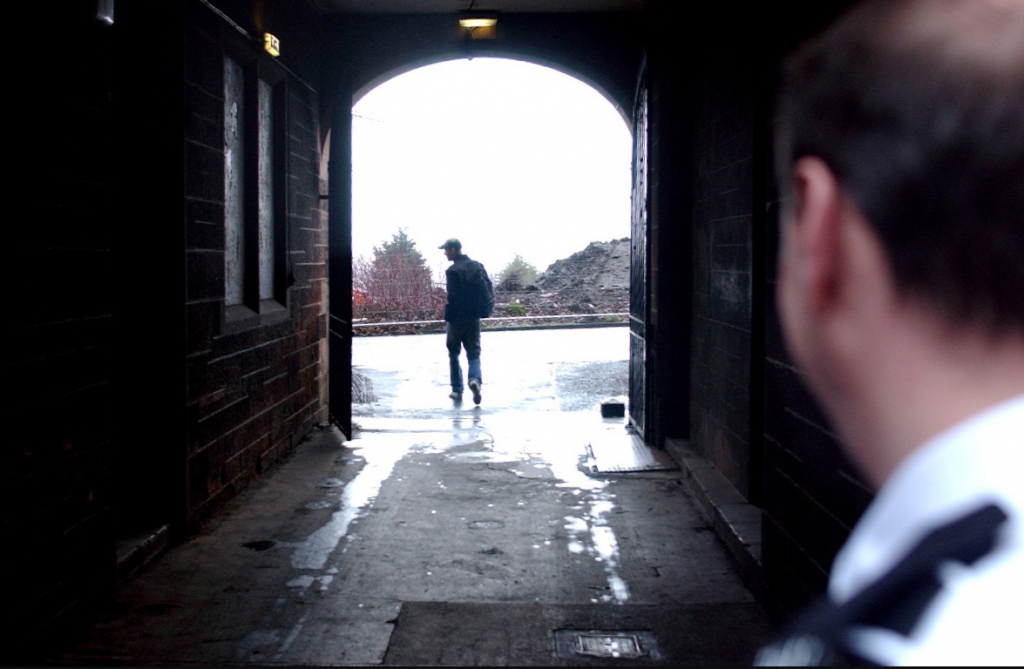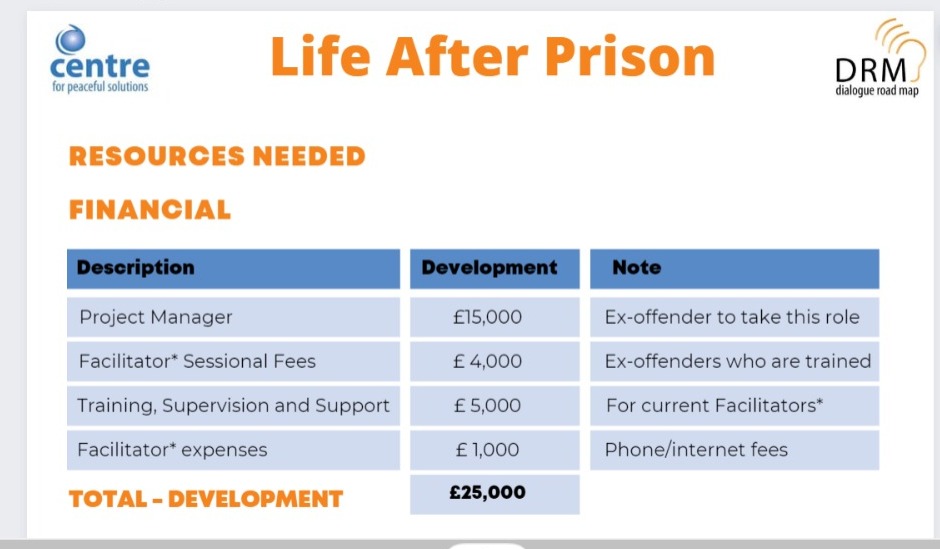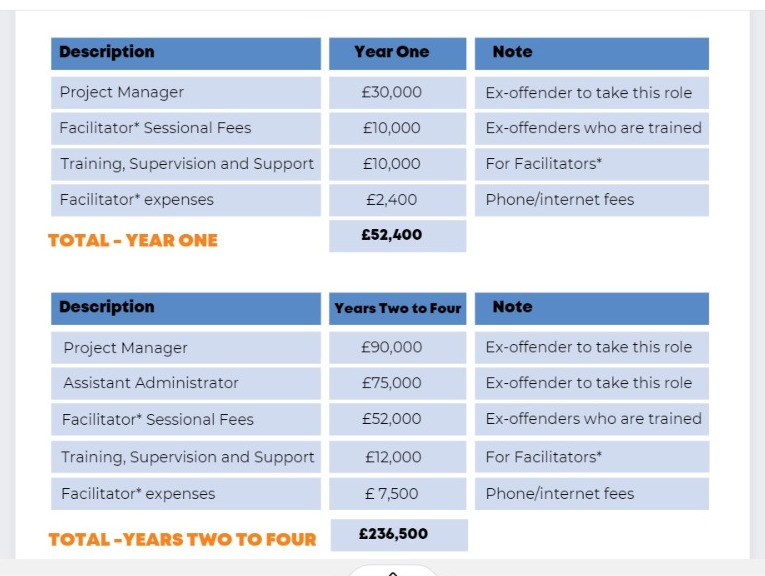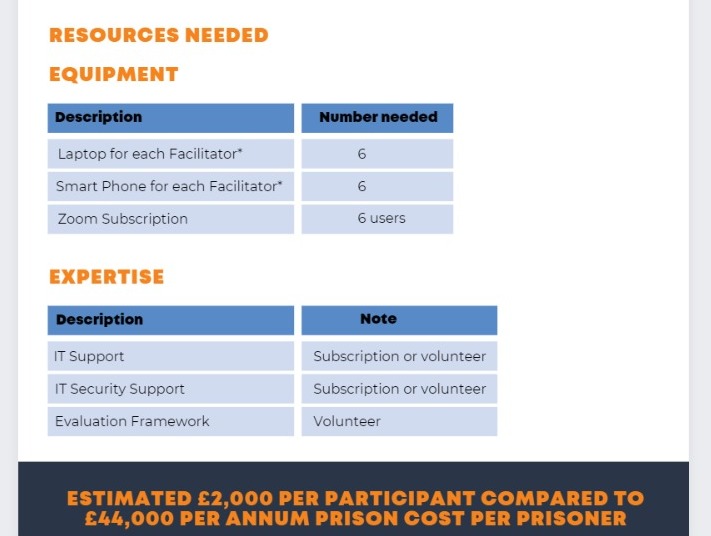Life After Prison
Support us in 2023
Learn about our latest initiative at the Centre for Peaceful Solutions and respond to our call to action for support to develop its potential

We are assisting people who come out of prison with limited resources by offering emotional support at a critical time to reduce re-offending and promote rehabilitation.
WILL YOU HELP?
Background
Following on from our 5-year project in Dartmoor prison, we have stayed in touch with a number of our prisoner trained Dialogue Road Map Facilitators after release from prison. Each one had a completely different experience of re-entry into society depending on the level of support available.
Even with good family support, the trauma of prison and the horror of continuous 23-hour lockdowns during Covid have had a detrimental effect on the mental health of people re-entering society.
For example, Dave (name changed) was released without any place to go. After a relative paid for one night at a hotel, he was left on his own, unable to access his £46 discharge grant, with no alternative but to stay with friends at the town of his crime or face sleeping on the streets.
In another example, John (name changed) was dropped off in a town where he knew no one in a one room flat with no furniture.
With our support both of them have been able to find a way despite the odds being against them.
They reported that having online emotional support relieved them from suicidal thoughts and gave them motivation to improve their lives. These examples and other cases prompted us to develop this latest project.
For many ex-prisoners their route to release is via an open prison or a licensed premises giving them time to adapt to life outside prison.
Even so, there are still many who are released straight onto the streets from Category C prisons. For example, at Dartmoor Prison, a report by HM Inspectorate of Prisons (HMIP) found pre-release preparations for high-risk prisoners “was often unplanned, rushed and poor” with hundreds of prisoners being released without the necessary support to reduce the risk of re-offending.
In an informal conversation with a resettlement officer in London he stated that many prisoners, on the day of release say “See you tonight, guvnor” meaning that they will break the terms of their license in order to be brought back to prison because they have no support.
While mercy and forgiveness are often in short supply for those who have broken the law and harmed others, there is still a necessity to reduce the risk of re-offending during re-entry into society.
47% of adults are reconvicted within one year of being released and this rises to 60% of offenders serving sentences of less than 12 months.
For children and young people in custody the rate of reoffending rises to 75%. Reoffending by ex-prisoners costs society at least £11bn per year.
“47% of adults are reconvicted within one year of being released and this rises to 60% of offenders serving sentences of less than 12 months. “

The Concept
Life After Prison is an online space where people leaving prison with little or no assistance can receive emotional support from a trained Dialogue Road Map Facilitator* who has been in prison and understands the recovery process.

Our online space provides fellowship by way of regular moderated meetings for those who have left prison and are struggling to re-enter society. Meetings are moderated and supervised by professional Dialogue Road Map Practitioners and who are there to provide a sense of family.
Currently, we are developing the project by supporting former prisoners who were on the Dialogue Road Map team in Dartmoor Prison. These men are keen to expand the project to support others.
Next Stages of Development
- Liaising with Probation Officers to ensure that ex-offenders on license do not break license conditions by attending.
- Developing a prison referral service to contact prisoners before release so they can access the service on the day of release.
- Setting up a platform and joining instructions.
- Piloting with 6 ex-prisoners and reviewing and refining as we go.
“A free, accessible space for emotional support and fellowship after release. “
What the service will provide
A free, accessible space for emotional support and fellowship after release. We will assign membership after they attend six meetings. Each member will be offered the opportunity to write a life plan with short, medium and long term goals and given the following support according to their needs:
- One to one listening sessions to rebuild self-confidence
- One to one mentoring sessions to track progress
- The self-reflection Pack – an intensive facilitated journey of self-awareness and healing
- Family Mediation where relationships have broken down
- Restorative Justice if appropriate
- Advocacy to help communication with potential employers, probation officers, jobcentre etc
- Networking to expand their contacts
The goal is to provide focus and direction so people re-entering society can find meaning, fulfil their potential and make a contribution in society.

What differentiates this project

- Dialogue Road Map Facilitators* were prisoners themselves and offered this support in prison to people struggling with addictions, mental health issues, debt, self-harm, violence, and family breakdown.
- We are holding people’s hearts. Other services offer amazing practical help like housing and employment opportunities, we address the trauma and stress that leads to conflict and violence and which prevents long-term sustainable recovery and can undo practical support.
- Placing importance on sustainability through interdependence. While individual wellbeing, creativity and betterment is important and tended to, it is contextualised as part of community.
- Focusing on a deep understanding of relationships, communication, self-governance and accountability. This model aims to prove that by investing in healthy dialogue, a resilient and solid foundation is in place to weather the storms of life.
Outputs
Development
- Design and development of the platform
- Building a referral network
- On-going training, and support for the current Facilitators*
- Development of policies and procedures
- Partnership agreements with external agencies
Year One
- Pilot of 6 ex-offenders into the process
- Developing the process around the participants
- Reviewing and evaluating the process
- Develop employment training and volunteering
- Develop intake process
- Formal Launch of Life After Prison
Year Two
- Intake up to 48 ex-prisoners into fellowship meetings
- Provide a suite of support for up to 24 participants
- Track progress and impact
- On-going training, and support for the current Facilitators*
- Increase Number of Facilitators* by training participants
Year Three
- Increase capacity
- Introduce new services
- Recognition of the service by HMPPS, Social Services and Employer Businesses
Outcomes
- Reduction in re-offending
- Stable, self-responsible, accountable individuals able to find their place in society
- Participants who had little or no hope training to become Facilitators*
- More family ties restored
- Participants learn to notice the early warning signs of re-offending much earlier and seek support while they are just thoughts.



